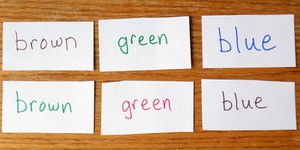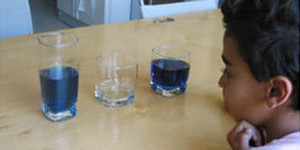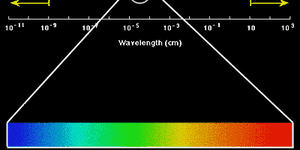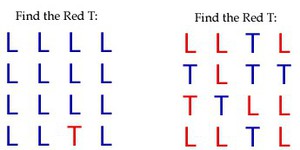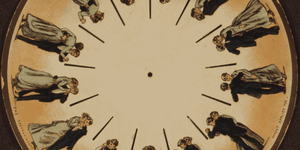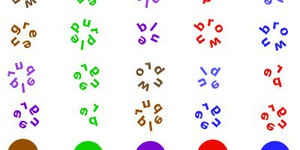Fourth Grade, Human Behavior Science Experiments (59 results)
Fun science experiments to explore everything from kitchen chemistry to DIY mini drones. Easy to set up and perfect for home or school. Browse the collection and see what you want to try first!
If you're interested in learning more about how people think, what motivates them, how well their memories work, or any other of the fascinating things that make us human, then you're in the right place!
|
Select a resource
Sort by
|
Artificial intelligence (AI) programs can now generate photorealistic pictures of people who do not exist in the real world. How can you tell if a picture is of a real person or a fake, AI-generated person? What features of the picture do people use to decide whether the face is real or AI-generated? In this project, you will explore these questions as you ask volunteers to look at both real and AI-generated pictures of human faces.
Read more
Can you pat your head with one hand while you rub your stomach with the other? This science project idea is kind of like doing that, but this project can actually give you some insight into how your mind works. The task is to name colors. It sounds simple enough, but see what happens when color words get in the way.
Read more
AI (artificial intelligence)-generated text is a hot topic for many reasons. Computers can now generate convincing paragraphs or even pages of text that look like they were written by a human. How do you know if a news article you are reading was written by a human or an AI? How does a teacher know if a student's essay was written by an AI? How do you know this text was not written by an AI? In this science project, you will conduct an experiment to see if volunteers can correctly identify…
Read more
Some people have a photographic memory and can memorize anything they see almost instantly! Wouldn't that make homework easy? Other people can remember almost anything they hear. Try this experiment to see which type of memory you have.
Read more
Having a younger brother or sister can be a real chore. They can get into your things and mess up all your stuff. But have you ever thought that when younger siblings do this kind of thing, they are actually learning about the world around them and how to interact with their environment? Every day, a young child's brain is getting new information about his or her environment and developing ways to organize that information. Learning about and understanding this conduct is the study of human…
Read more
Think back to the last time you went to the grocery store. How well can you describe the person who was ahead of you in the check-out line? How many details do you remember about the person? How accurate do you think your memory is? Here is a project to investigate the accuracy of people's observations during everyday life.
Read more
You know how to make new colors by mixing paint or crayons. For example, you get green by mixing yellow and blue, or orange by mixing red and yellow. With paint, blue, yellow, and red are primary colors, which you can use to make other colors. Have you ever tried making colors with light? Are the primary colors the same ones you use for paint? Do this experiment and find out.
Read more
What makes you notice someone in a crowd? Why do some things stand out, while others melt into the background? In this science project you can investigate the psychology of how things get noticed, by studying how our brains perform a visual search.
Read more
Have you ever heard the phrase, "Seeing is believing"? Well, it is more accurate than you might think! In this science project, you can investigate the phenomenon of apparent motion by making your own flip-book animations
Read more
The Stroop effect describes an experiment about the time it takes to name the color of printed words. When you try to name the color in which color words are printed, it takes longer when the color word differs from the ink color than when the color word is the same as the ink color. This project is an interesting variation: what happens if you 'warp' the words into a curved shape that is harder to recognize as a word? Will the Stroop effect still happen? How 'warped' do the words have to be in…
Read more
|
Explore Our Science Videos
Dancing Robot
Balloon Car: 2015 Engineering Challenge
Marble Machine: 2016 Engineering Challenge





